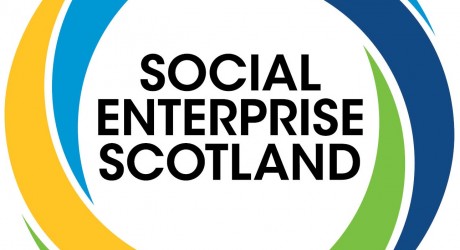THE significant size and impact of Scotland’s social enterprise businesses is being revealed for the very first time, with the launch of the results of a large-scale census.
The new research confirms Scotland as a world-leading nation in nurturing social enterprise and recognises social enterprise as a fairer and more inclusive way of doing business.
- Over 5,000 social enterprises in Scotland
- Over 200 new social enterprises formed each year
- Highlands and Islands has 22 per cent of all social enterprises
- Edinburgh and Glasgow account for 26 per cent of all social enterprises
- 60 per cent of social enterprises have a woman as their most senior employee
- 68 per cent of social enterprises pay at least the recognised Living Wage
- Provides over 112,400 jobs
- £1.15bn in combined traded income
- Net collective assets £3.86bn
- Gross Value Added (GVA) figure is approx. £1.7bn
The research was commissioned by a range of public and social enterprise organisations*.
Rachael McCormack of Highlands and Islands Enterprise, speaking on behalf of the project steering group, said: “This excellent report confirms the scale and vital contribution of social enterprise to society and to the economy in the Highlands and Islands and to Scotland as a whole.
“Social enterprise is a business model that helps tackle social issues, promote equality and achieve sustainable economic growth. These are the reasons that we attach so much importance to social enterprise and are working with social entrepreneurs to strengthen leadership, innovation and the business dimension of their enterprises.
“Working together in this way will help achieve our shared ambition to grow the social enterprise community year on year.”
Jonathan Coburn, director, Social Value Lab, the organisation commissioned to carry out the research, said: “This has been an enormously challenging and significant piece of work, one that at last provides a definitive picture of the scale, reach and economic significance of social enterprise activity in Scotland.
“It tells the story of an important and diverse group of ethical, community-led and democratic enterprises that have grown up largely beneath the radar, but which now touch on the lives of people in almost every urban and rural community in the country.
“The research shows that it is possible to operate in a way that is both good for business and good for Scottish society.”
The full research will be published on Wed 2 September at the CEIS Policy and Practice conference, Radisson Blu Hotel, Glasgow and will be publicly available to download. See conference programme and timings.
Media wanting to attend the launch please call 0141 425 2923 to book a free place. Please Tweet using #SocEntCensus
For further information, to arrange an interview or to request a social enterprise feature for print please contact: duncan.thorp@socialenterprisescotland.org.uk / 07501 221 581.
ENDS
Notes to editors:
1 *The Social Enterprise Census 2015 was funded by: Big Lottery Fund, Co-operative Development Scotland, Highlands and Islands Enterprise, Nesta, Social Investment Scotland, Scottish Enterprise and The Scottish Government.
2 The Social Enterprise Census 2015 is a project endorsed and guided by the following main partners: Big Lottery Fund, Community Enterprise in Scotland, Co-operative Development Scotland, Firstport, Highlands and Islands Enterprise, Glasgow Caledonian University, Nesta, Scottish Enterprise, The Scottish Government, Scottish Urban Regeneration Forum, Senscot, Social Enterprise Academy, Social Enterprise Scotland, Social Enterprise UK, Social Firms Scotland, and Social Investment Scotland.
3 What is a social enterprise? Social enterprises are independent businesses that exist to deliver a specific social and/or environmental mission. This could be employing homeless people, recycling waste or something similar. They aim to make profit like any other business, but invest 100 per cent of it in their social purpose. Social enterprises in Scotland are “asset locked” (all property, money etc. can only be used for a social mission). They’re a more ethical and sustainable way of doing business. Social enterprises are not charities that get most income from grants/donations and they’re not a business simply behaving ethically or an arms-length company of a public body. Read more here.
4 What examples are there? Diverse examples include: The Big Issue, The Wise Group, Social Bite, Divine Chocolate, Cornerstone, Kibble Education and Care, media co-op, Glasgow Housing Association, Isle of Eigg Heritage Trust, Link Group Ltd, the Eden Project, Capital Credit Union, The Grameen Foundation, Mondragon Corporation in the Basque Country and the Homeless World Cup.
MEDIA RELEASE issued by Social Enterprise Scotland. You too can post your story ideas for journalists (aka press or media releases), on allmediascotland.com. Email here for more information.
Check out twitter.com/nonstopstories for your very own media releases feed…
To catch up on all the media releases recently posted on to allmediascotland.com, you need only click the link icon that you see towards the bottom right of our two media release ‘gateway boxes’.
 It’s this icon, here. It’s your route straight into the rich archive.
It’s this icon, here. It’s your route straight into the rich archive.
—
Social Enterprise Scotland details…
Contact: Duncan Thorp
Email: duncan.thorp@socialenterprisescotland.org.uk
Website: http://www.socialenterprisescotland.org.uk






